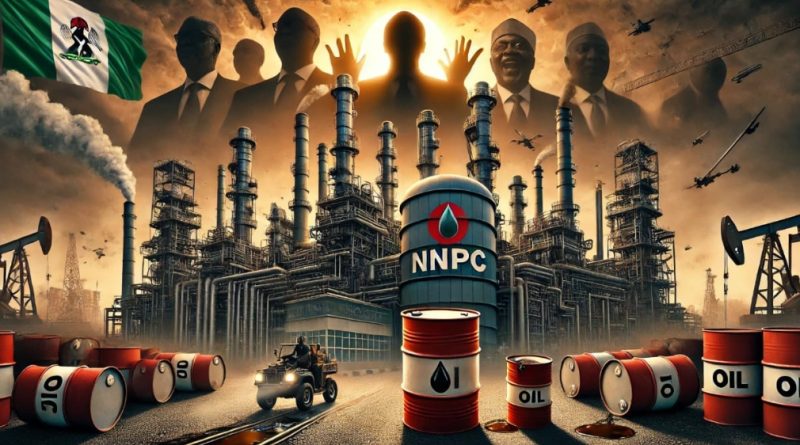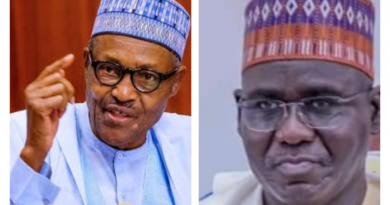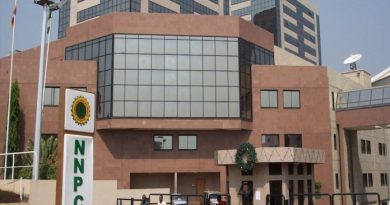THE INTRICACIES OF NIGERIA’S OIL SECTOR: Between Promises and Realities
Perspectives with Dr. Iyke Ezeugo.
The drama continues! The Nigerian oil sector remains a focal point of national concern, particularly as the government navigates significant reforms, including the removal of the fuel subsidy, the rise of the Dangote Refinery, and the implementation of the Petroleum Industry Act (PIA). While these changes have been framed as necessary steps toward transparency and economic recovery, the realities on the ground raise troubling questions about governance, accountability, and who truly benefits from these reforms.
The Fuel Subsidy Confusion: Gone or Simply Repackaged?
When President Bola Tinubu boldly declared “SUBSIDY IS GONE!” during his inaugural speech, without a clear plan in place to mitigate the potential fallout, many Nigerians were caught up in the moment, hailing it as a decisive step towards fiscal responsibility. However, this pronouncement, more akin to a campaign rally slogan than a well-thought-out policy directive, has since been exposed as a misguided attempt at economic reform. The lack of foresight and preparation has left the country grappling with the consequences, as the removal of subsidy has led to a surge in fuel prices, exacerbating the economic hardship faced by millions of Nigerians. Who doesn’t know that the fuel subsidy had long been a drain on the country’s resources, with billions lost to corruption and inefficiency? However, shortly after the removal, the unification of exchange rates and the floatation of the naira caused fuel prices to skyrocket. The announcement of “Subsidy is gone!” led to an immediate hike in fuel prices as dealers exploited the situation to profit from their existing stock, leaving Nigerians to face the sudden and drastic increase without any protective measures.
Who doesn’t know how this rapid price increase revealed a harsh reality: the landing cost of petrol had exceeded pump prices, prompting the Nigerian National Petroleum Company Limited (NNPC) to ‘intervene by covering the difference.’ In essence, this created a covert subsidy system, shrouded in confusion and lack of transparency. Nigerians are left asking whether the subsidy has truly been eliminated, or if it has been rebranded to mask its continued existence.
The NNPC’s intervention in the fuel market underscores the incomplete nature of deregulation, leaving citizens to shoulder the financial burden without clarity on where the benefits of these reforms are going.
Dangote Refinery: A New Hope or Another Power Struggle?
The $20 billion Dangote Refinery, boasting a refining capacity of 650,000 barrels of crude oil per day, was touted as the solution to Nigeria’s dependence on imported petroleum products. It promised to meet domestic demand and potentially transform Nigeria into a net exporter of refined oil. Yet, despite its potential, the refinery has encountered significant hurdles—primarily in securing crude oil from the NNPC.
Although the Petroleum Industry Act mandates the allocation of a percentage of Nigeria’s crude for local refining, the NNPC cited pre-existing international agreements, leaving Dangote without the crude needed to begin operations. This impasse has fueled suspicions about the NNPC’s priorities, raising critical questions: Is Nigeria’s oil being managed for the benefit of the nation, or to maintain international relationships at the expense of domestic needs?
Monopoly Fears: NNPC vs. Dangote Refinery
The power dynamics between the NNPC and Dangote Refinery have only complicated the picture further. On one hand, the NNPC warns of the dangers of creating a monopoly in the refining sector, should Dangote control both refining and distribution. On the other hand, the NNPC itself is poised to become the sole buyer of refined petrol from Dangote’s refinery- a move that reeks of self-interest rather than genuine concern for market competition.
These conflicting narratives leave Nigerians skeptical of the government’s intentions. Rather than promoting a competitive market, the NNPC appears to be safeguarding its dominance under the guise of protecting consumers, while potentially manipulating prices in its favor.
Corruption and Debt: The Shadow Behind Fuel Pricing
A more insidious issue lingers behind the opaque pricing structure: corruption. The NNPC recently revealed a staggering $6 billion debt, raising concerns about its financial stability and motives. This debt burden led to a sharp increase in fuel prices, with petrol hitting N897 per liter. For Nigerians already struggling with inflation and economic hardship, this has only compounded their misery.
Despite these price hikes, doubts remain about whether the NNPC is merely inflating prices to cover its debts or genuinely reflecting market conditions. The corporation’s lack of transparency and accountability further exacerbates public distrust, as Nigerians question if the oil sector is being run for their benefit or to line the pockets of the elite.
The Petroleum Industry Act: Unfulfilled Promises
The 2021 enactment of the Petroleum Industry Act (PIA) was meant to revolutionize Nigeria’s oil sector, promoting transparency, efficiency, and local refining. Among its most significant promises were the commercialization of the NNPC, the allocation of crude oil for domestic refining, and the transparent licensing of oil exploration.
However, the PIA’s potential has largely gone unrealized. The NNPC’s reluctance to allocate crude oil for local refining, coupled with its opaque operations, has kept Nigeria dependent on imported petroleum products. The act’s vision of a transparent and accountable oil sector remains a distant goal, with the NNPC continuing to operate behind closed doors.
The Presidency’s Grip on the Petroleum Ministry: A Strategic Silence
One of the most concerning aspects of Nigeria’s oil sector governance is the presidency’s tight control over the Ministry of Petroleum Resources. Successive administrations, including those of Olusegun Obasanjo, Goodluck Jonathan, and Muhammadu Buhari, have either kept the portfolio for themselves or appointed figureheads with no real power. This concentration of power raises important questions: Why has the presidency maintained such control over the oil sector without changing anything about the rot in the sector?
The answer may lie in the immense financial and political power that oil confers. By keeping the ministry within the executive’s grasp, the presidency effectively shields the NNPC from scrutiny, allowing the status quo of corruption and inefficiency to continue unchecked.
Economic Ripple Effects: The Real Cost of Corruption
The link between oil sector corruption and Nigeria’s broader economic hardship cannot be overstated. The soaring fuel prices, driven by mismanagement and opaque policies, have led to skyrocketing costs for transportation and essential goods. Inflation continues to climb, pushing more Nigerians into poverty, while the nation’s wealth remains concentrated in the hands of a few.
At the heart of this economic malaise is the failure to manage Nigeria’s oil wealth effectively. Despite being one of the world’s largest oil producers, Nigeria’s dependence on imported fuel has made its economy vulnerable to global price fluctuations and exchange rate volatility. The NNPC’s monopoly on fuel pricing only exacerbates these challenges, leaving ordinary Nigerians to pay the price for policies designed to benefit a select few.
A Call for Accountability and Reform
Nigeria’s oil sector stands at a crossroads. The promises of the Petroleum Industry Act, the potential of the Dangote Refinery, and the removal of the fuel subsidy have all created the expectation of a new era of transparency and efficiency. Yet, the reality has fallen far short.
Without meaningful reform, the cycle of corruption, inefficiency, and economic hardship will continue. The NNPC must be held accountable for its financial dealings, and the government must honor its commitment to transparency. The appointment of an independent Minister for Petroleum Resources (who we can hold accountable without immunity), with the authority to oversee the sector and implement true reforms, is a crucial first step.
Ultimately, Nigeria’s oil wealth belongs to its people. It is time for the nation’s leaders to manage this resource in the interest of all citizens, not just a privileged few in government and the NNPC cycle.
Dr. Iyke Ezeugo is a Forensic Researcher, a Social Impact Expert, and Satirist who uses his perspectives and parodies to challenge the status quo, spark debates, and inspire fresh perspectives on public affairs through insightful intellectual injections.




